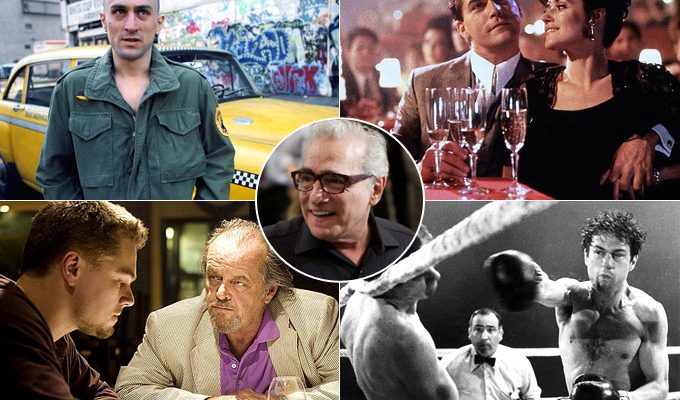 “Italianamerican” (1974)
“Italianamerican” (1974)
Coming off the success of “Mean Streets,” what did Scorsese do? He went home. There are fewer cinematic subjects more self-indulgent than interviewing your family for a profile documentary. Yet Scorsese’s parents, Catherine and Charles, who’ve appeared in many of his films throughout the years, are such good company that it more than works for this 49-minute interview in their New York apartment. Subjects vary from their experience growing up in the city, immigration, religion, their ancestors and most importantly, Catherine’s spaghetti sauce and meatballs, charmingly detailed in recipe form in the film’s end credits. Usually this is recommended for Scorsese die-hards only but that seems unfair when watching the film is such a joy. In fact, the filmmaker recently declared this to be his favorite of all his works. If nothing else, it’s proof that any subject can make for a good movie if told well enough. “Italianamerican” is simple, straightforward and provides a glimpse into Scorsese’s own world and life experience. Not many filmmakers could pull it off without coming over as self-serving, but he does. [B+]
 “Alice Doesn’t Live Here Anymore” (1974)
“Alice Doesn’t Live Here Anymore” (1974)
Martin Scorsese’s deeply underrated comedic, dramatic and softly tender picture earns itself two memorable distinctions which were arguably never to be repeated in the filmmaker’s career again. 1) the movie was a rare work-for-hire, shepherded by actress Ellen Burstyn who got it greenlit at Warner Bros. and then went to Francis Ford Coppola for a director suggestion (and he recommended Marty). 2) It spawned the diner-set situation comedy “Alice” which ran nearly 10 years on CBS and even appropriated three of the same actors (Vic Tayback, Beth Howland and Diane Ladd, though to be technical about it, the latter joined the show belatedly as a different character). Centering on second chances, love and dreams (lets not forget the stylized, “Gone With the Wind”-esque opening sequence) and its hardships, Burstyn stars as a New Mexico housewife who uses the untimely, accidental death of her uncommunicative and largely rotten husband to start anew. Migrating to Arizona with her difficult, prepubescent son, the single mother struggles to keep him happy, pay the bills, find work and survive. A former singer, Alice finds marginal hope and success in Phoenix, but this brief reprieve is hijacked by a psychopathic and jealous cowboy, who’s married to boot (Harvey Keitel in maybe his first and only role as Southwesterner). Settling in Tucson, things begin to improve somewhat when Alice, forced to give up her singing career and take a waitressing job, is courted by a kindly and gentle cattle rancher (Kris Kristofferson). But love and life being as complicated as they are, on top of demanding children (see Jodie Foster as the tomboy-ish delinquent who gets Alice’s son in trouble), the still emotionally wounded Alice never quite has an easy go of things. Slight in the way the movie could just be another chapter in Alice’s life (it ends with the rather incomplete sense of many further stories to tell), “Alice Doesn’t Live Here Anymore” still succeeds as the rare Martin Scorsese film centering on a female protagonist, with a tenderness, empathy and humanity the filmmaker is not especially known for. Oh, and that denimy choogling ‘70s soundtrack is pretty choice too. [B+]
 “Taxi Driver” (1976)
“Taxi Driver” (1976)
Choosing between “Goodfellas” and “Taxi Driver” would be nothing short of a “Sophie’s Choice” in terms of which film is the greatest in Scorsese’s impressive filmography, so we’re glad we don’t have to attempt it. Whatever the case, ‘Driver’ is one of the greatest films ever made, and without a doubt the greatest achievement in terms of portraying loneliness and isolation. Cinema has the rare ability to completely inhabit a subjective point of view, and that aspect is in full force in this story of one Travis Bickle, a man who tries to make connections but instead finds himself spiraling out of control awash in disturbing thoughts and violent ambitions. It’s essentially like taking a stroll around the mind of a burgeoning psychopath. What else can be said about this classic that hasn’t already been said, countered and said again? Not much we suppose, but let’s just add to the echo chamber a bit. Robert De Niro gives one of the all-time great lead performances in cinema history and Scorsese directs Paul Schrader’s script (which he referred to recently as a “perfect” script) with a perfect sense of the material. There are plenty of stylistic flourishes in the film but they always add to the film instead of overshadowing, and Bernard Herrmann’s iconic, jazzy score (his final original score before he died in 1975) just gets better with every year. So, yeah, this is a brilliant film, the rare example of a piece of cinema revered at its time of release that’s also become better with every passing decade. We guess, in the end, the questions to ask are: if you haven’t already seen “Taxi Driver” then, why the hell not? And does anyone out there not think it’s great? Not always, but sometimes classics deserve their unassailable position in the canon, and this is one of those times. [A+]

